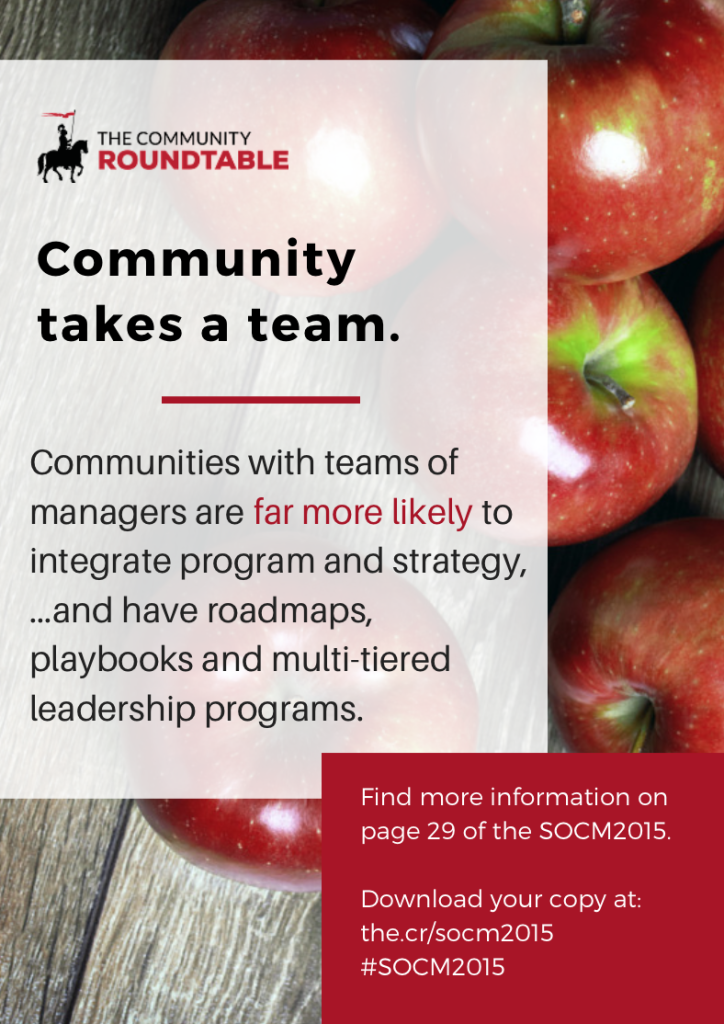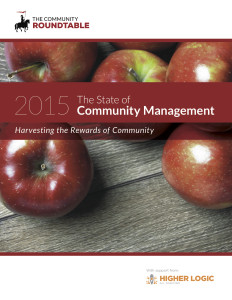By Ted McEnroe, The Community Roundtable
The State of Community Management 2015 is out in the wild. Odds are that you are aware of that, if you are a regular reader of this blog and a friend of The Community Roundtable. But if not, or if you haven’t had a chance to pull up a chair, kick back and dive into research and analysis in this year’s report, today is your lucky day.
Today, we begin a regular SOCM Monday Facts series – giving you a glimpse inside the report and directions for ways to dig into some of the important findings of this year’s survey. This week, we take a look at community teams. It might not surprise you to know the largest communities (1,000,000+ members) are more likely than others to have community teams. After all, you figure, with that many members, you need all the help you can get to moderate and manage the community.
That’s true, but as it turned out, having a team didn’t necessarily improve response times and other tactical elements of their communities. Instead, the power of community teams was more evident for strategic reasons.
Fact #1:
Community teams correlated strongly with the likelihood a community had a roadmap and/or a playbook, had invested in a strong advocacy program and had done a better job integrating the community and business strategies. That’s because a community team not only provides more resources for moderation and day-to-day operations of the community, it also allows for community professionals to step back and look strategically at the community, rather than focusing solely on tactics.
Here’s an example – communities with a single community manager were just as likely as those with teams to be able to express the value of community to the organization and to the members. But the team-led communities were more likely to have a measurable strategy and resourced roadmap to deliver that value to the organization and members.
Where else did team-led communities shine? Download the report – and turn to page 29. Investing in a community team might make your moderators more nimble – but its real power is far more strategic.
Want to learn more? Download the State of Community Management 2015 here and check back here each Monday this summer for more Monday Facts from The State of Community Management.



